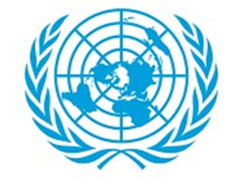Mr. Shine began by explaining the fundamentals of simulations in education. He emphasized how these interactive techniques can create realistic scenarios that engage students more deeply, allowing them to apply their theoretical understanding in practical contexts. The workshop offered participants a chance to explore various simulation tools and methods, each designed to make learning more dynamic and interactive.
The key tools discussed during the workshop included Flippity, Forage, and Kahoot:
Forage: Another tool highlighted was Forage, which offers virtual work experience programs and simulations. Forage helps students engage with real-world scenarios in a controlled environment, providing practical insights into professional tasks and industry practices. This tool is particularly useful for creating simulations that mimic real-life challenges, allowing students to practice problem-solving and decision-making skills relevant to their fields of study.
Kahoot: Mr. Shine also discussed Kahoot, a popular platform for creating and conducting quizzes. Kahoot’s interactive quizzes and games are designed to foster competitive and collaborative learning among students. With its engaging format, Kahoot encourages active participation and instant feedback, making it an effective tool for reinforcing learning and assessing student understanding.
The workshop included hands-on activities where participants used these tools to design their own simulations tailored to their teaching needs. The practical exercises allowed faculty members to experience the benefits of each tool and understand how they can be incorporated into their curricula to enhance student engagement and learning outcomes.
The session concluded with a Q&A segment, where Mr. Shine addressed specific queries and provided further insights into using simulations effectively in educational settings. The feedback from participants was positive, with many expressing eagerness to implement these techniques in their teaching practices.
In summary, the Workshop on Simulation for Teaching Learning was a valuable and informative event that provided faculty members with practical tools and strategies for enhancing their teaching methodologies. The introduction of tools like Flippity, Forage, and Kahoot showcased the potential of simulations to transform educational experiences, making learning more interactive and impactful
Address
Christ University Road, 30 Valor Court
At Post: Dasve Lavasa, Taluka: Mulshi
Pune 412112, Maharashtra.
Telephone
Mail Us At



